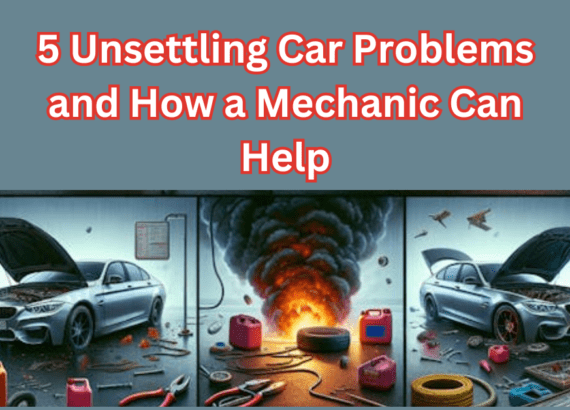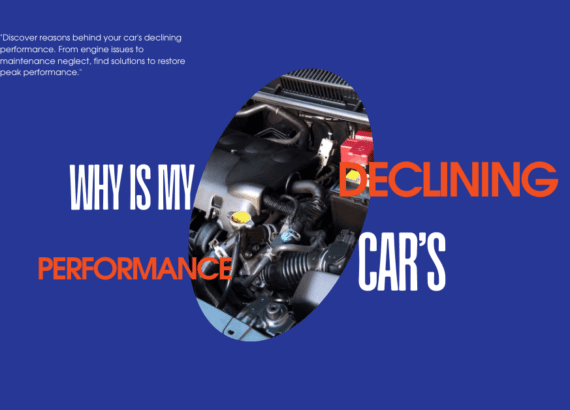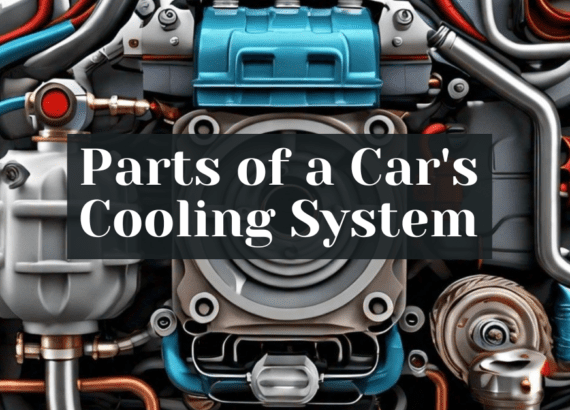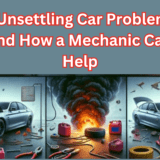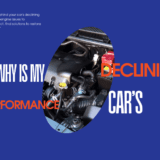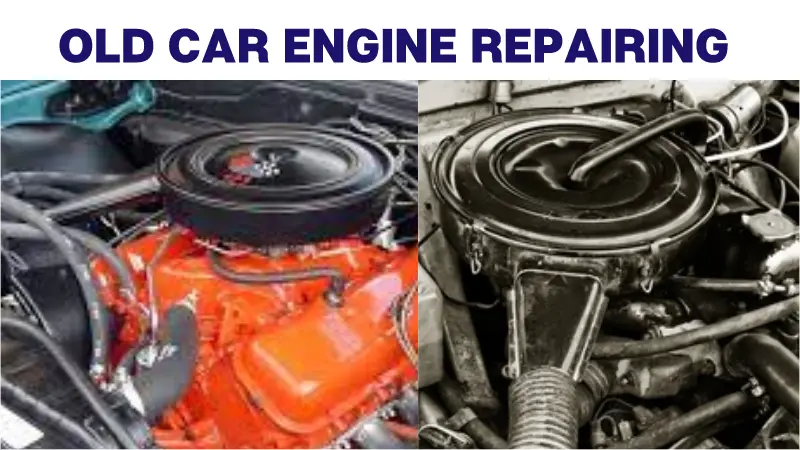5 Engine Noises that Require Immediate Attention

Do you notice any peculiar engine noises? Don’t dismiss them! Find out about the five engine noises that need your quick attention. Learn how to spot these problems quickly and fix them to keep your car in good shape.
Introduction
It’s important to pay attention to engine noises when it comes to the performance and longevity of your car. Unusual engine noises might act as early warning indicators of underlying issues that need prompt care. In this article, we shall examine five engine noises that should never be disregarded. We will examine their potential causes and why it is crucial to act quickly in the case of engine knocking sounds, shaking of steering wheel trembling, and engine internal combustion
One of the top worries among car owners is the engine knocking sounds. This metallic tapping or banging noise coming from the engine may be an indication of problems such as gasoline detonation, poor fuel quality, or timing issues. The entire performance and dependability of your car may be compromised if you ignore knocking on the engine.
Engines can make noises due to several reasons. Here are some common causes:
Combustion Noise:
When fuel ignites inside the combustion chamber of an engine internal combustion, noise is produced. The components of the engine and the exhaust system usually dampen this noise, which is a normal byproduct of how the engine works.
Mechanical Noise:
Numerous moving components, including pistons, crankshafts, valves, and timing belts, are found in engines. These parts may make strange noises like rattling, knocking in the engine, or squealing if they are worn out, damaged, or incorrectly lubricated.
Exhaust System Issues:
A noisy exhaust system may be the result of malfunction or damage. A louder exhaust noise or a noticeable hissing sound may be the consequence of leaks, holes, or loose exhaust system parts.
Belt or Pulley Problems:
Serpentine belts, one type of engine belt, can make noise if they are worn, loosened, or out of alignment. Noise coming from the belt area could represent an issue with the pulleys or the belt itself.
Air Intake or Induction Noise:
When an engine draws air into the system, noise may be produced. The design of the intake system, the air filter, or the existence of obstacles or leaks may be to blame for this.
Fluid Issues:
Noise can be produced by increased friction brought on by insufficient or dirty engine oil. Similar to how low or polluted coolant can cause overheating; it may also cause the engine to make noise.
It is recommended that you have your engine inspected by a skilled mechanic if you hear any strange or recurring noises coming from it. They can identify the precise source of the noise and suggest the necessary maintenance or repairing of engine to get rid of the problem.
5 Noises that needs must and immediate Attention
Here are 5 noises that your must attention. Each one is explained.
1. Engine knocking sounds

One of the most frequent and unsettling noises is the banging sound that engines make. When knocking on the machine, the noise it makes is sometimes described as a metallic tapping or banging emanating from the engine room. Usually, the fuel inside the cylinders igniting causes it. Low-quality fuel, carbon buildup, or improper ignition timing are a few of the causes of knocking in the engine. Ignoring the engine knock sound might result in serious engine damage, including crankshaft or piston damage. It’s crucial to have an experienced mechanic assess and fix your machine if you hear banging noises.
2. Shaking off the steering wheel

If the steering wheel shakes or vibrates noticeably while you’re driving, this is cause for alarm. This symptom is frequently connected to problems with the engine or suspension system. Vibrations that travel to the steering wheel can be brought on by issues with the engine, such as misfiring cylinders or a worn-out crankshaft pulley. If this problem is ignored, the vehicle may handle poorly, be harder to control, and present safety risks. To stop further damage and protect your safety while driving, it is imperative to seek professional help to identify and fix the issue.
3. Engine internal combustion noises
It is never a good idea to disregard noises coming from the engine’s internal combustion system. Hissing, popping, or backfiring sounds are some examples of these noises. They might be a sign of difficulties with the fuel system, an inoperable ignition system, or exhaust leaks. These issues may result in decreased engine output, decreased fuel economy, and even possible damage to vital engine parts. Engine internal combustion must be addressed right away by a skilled mechanic to keep your engine operating at peak performance and avoid subsequent issues. so improve the performance of your engine to overtake these noises.
4. Knocking in the Engine
Persistent engine knock sounds should be treated carefully, just like knocking in the engine. A knocking noise that is unrelated to fuel detonation may be a sign of more serious problems, like deteriorated engine bearings, cracked pistons, or troubles with the connecting rod. If these noises are ignored, the engine may fail catastrophically, requiring expensive repairs or engine replacement. To prevent further harm and guarantee the dependability of your car, it is essential to have a qualified mechanic examine and identify the knocking noise’s cause.
5. Used Engine Noises
It’s important to listen closely for any unusual noises during the inspection when buying a used engine. Indicative of underlying problems, used engines may make a variety of unsettling noises. These sounds could be rattling, clunking, or grinding. They could indicate issues with deteriorating internal parts, loose pieces, or insufficient lubrication. To prevent probable failures, expensive repairs, or early engine replacement, these problems must be resolved before installing a used engine. Any existing issues can be found and fixed with the aid of experienced advice and a careful examination of the used engine.
Conclusion
When it comes to the well-being and functionality of your car, engine noises shouldn’t ever be ignored or dismissed. The five engine noises covered in this article—engine knocking noises, shaking of the steering wheel, internal combustion noises, engine knocking, and used engine noises—can all be signs of underlying problems that need to be addressed right away. Ignoring these engine noises could harm your car in some ways, from serious engine damage to decreased road safety. To avoid more difficulties, expensive repairs, and potential breakdowns, it is essential to solve these problems as soon as possible with the help of a trained mechanic.
FAQs
1. What brings on engine knocking noises?
Low-quality fuel, carbon buildup, or improper ignition timing are just a few causes of engine knock sound.
2. Why is it crucial to deal with engine noises right away?
Engine noises need to be attended to right away since they may be a sign of more serious problems that, if left unattended, could result in catastrophic engine failure or damage.
3. Could the shaking of the steering wheel be a sign of an engine issue?
The steering wheel might indeed shake or vibrate noticeably when there are problems with the engine or suspension system.
4. What sound does internal combustion make?
Internal combustion noises are strange sounds like popping, hissing, or backfiring that can be a sign of issues with the fuel or ignition systems.
5. What things should I think about before buying a used engine?
A used engine must be thoroughly inspected for any unusual noises before being purchased because they could point to underlying problems that must be fixed before installation.
6. Is it safe to drive when the engine makes noises?
It is not advisable to drive with an engine knock sound since it can indicate major problems that could cause further breakdowns or damage.
7. What adverse effects result from disregarding engine noises?
Ignoring engine noises can cause more serious issues, such as engine failure, expensive repairs, deteriorated vehicle performance, and a risk to driver and passenger safety.
